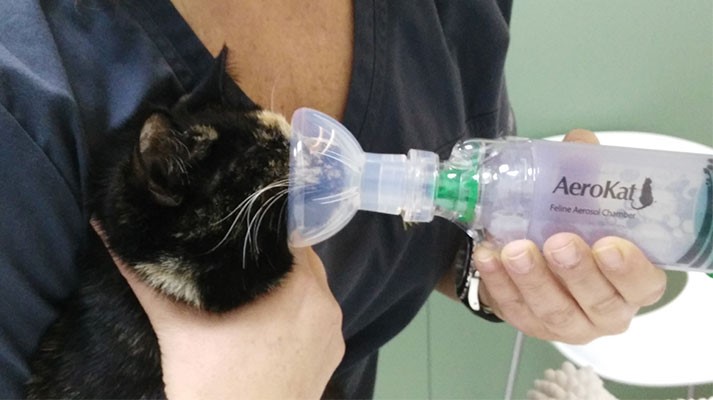
Indice
Why does asthma occur in cats?
Asthma in cats originates from an extreme reaction of the animal’s immune system to the presence of an allergen, which causes the body to release stimulants that provoke inflammation of the tissue surrounding the bronchi; a fundamental part of the respiratory system for air entry and exit. This is why asthma is also called allergic bronchitis. The narrowing of the airways in the cat is also accompanied by irritation and contraction of the muscles surrounding the bronchi. Causing difficulty in breathing (feline dyspnea), especially with regard to exhaling the air contained in the lungs.
What are the most common causes of asthma in cats?
As mentioned above, for asthma in cats to develop, an allergen must be present in the vicinity of the cat and the cat must have a certain sensitivity to it. The most common pollutants are smoke from tobacco, fireplaces, cars, etc.; cleaning chemicals such as bleach, aerosols and air fresheners. As well as mold, dust mites, pollen, certain plants and foods to which the feline may be allergic, in addition to the odor and dust emitted by some cat litter substrates.
What are the symptoms of asthma in cats?
Asthma is usually characterized by a persistent cough that may be mistaken for retching; labored breathing that is too fast or noisy compared to the animal’s normal breathing; wheezing when exhaling air. Any of these symptoms that are evident in the feline are a warning sign, and it is essential that the person takes him/her to a veterinarian as soon as possible. If feline asthma is not treated promptly, the symptoms and the disease worsen, leading to terrible complications such as death in the worst case scenario.
How do you treat a cat with asthma?
The treatment of a cat with asthma depends on certain characteristics such as the level of severity of the disease, the cause and the age of the animal. The basic treatment consists of the use of drugs, alone or in combination, to reduce the inflammation of the bronchi and improve the feline’s breathing, the most common being corticosteroids and bronchodilators. Treatment is usually carried out at home, except in cases requiring medical supervision. Another part of asthma care is the elimination of the allergic agent (allergen) from the area if possible, and the cleaning of the different elements of the home that accumulate dust and may affect the cat’s current condition. Image courtesy of (www.innovaveterinaria.com), all rights reserved.







